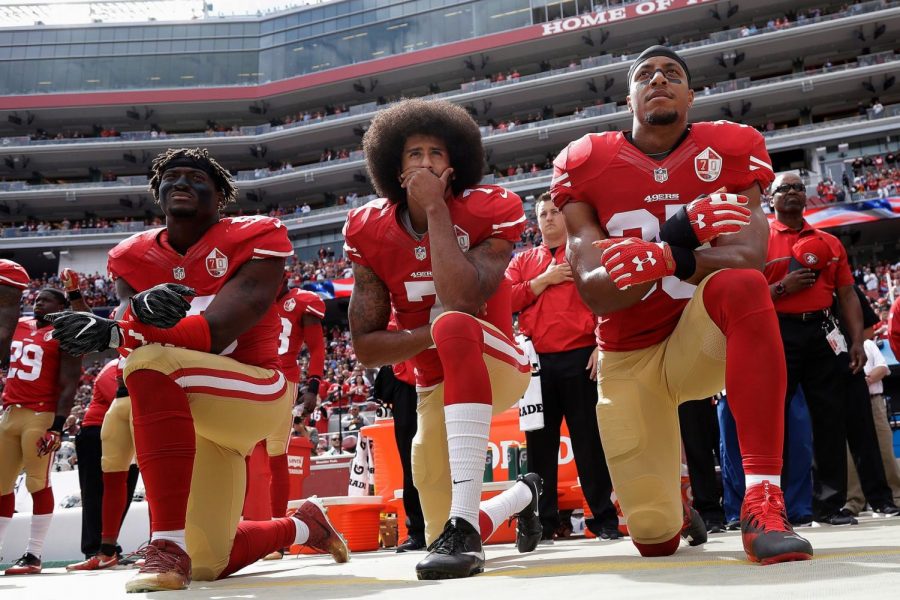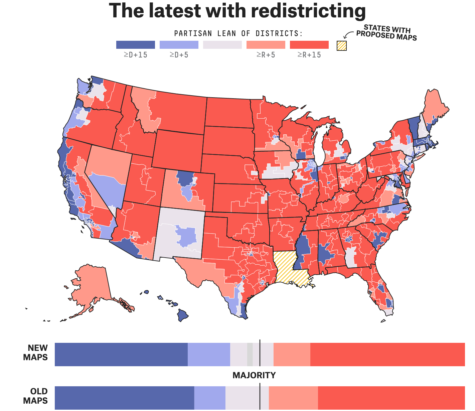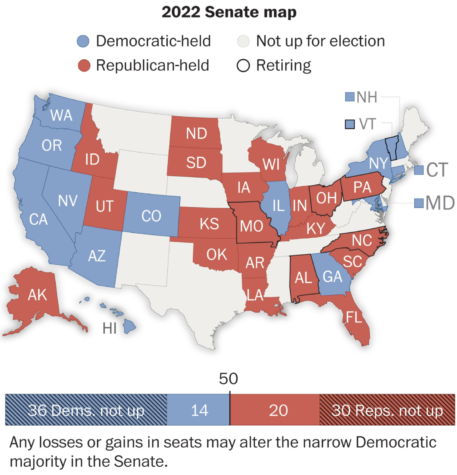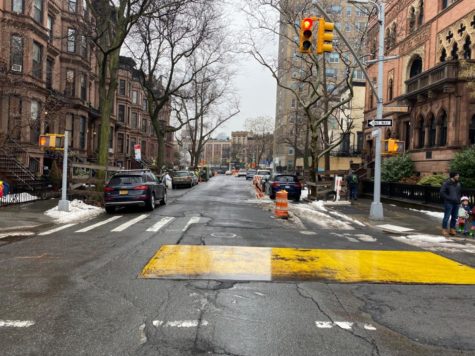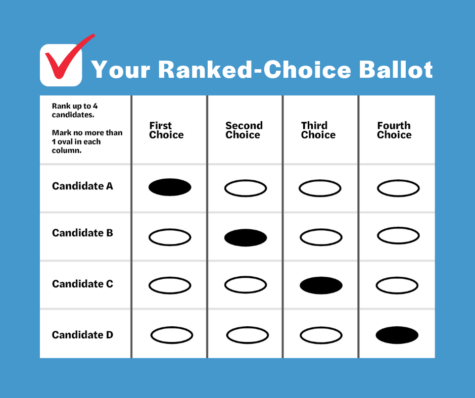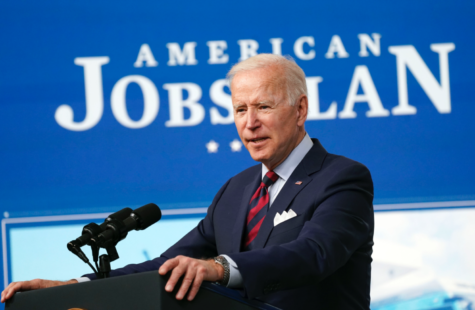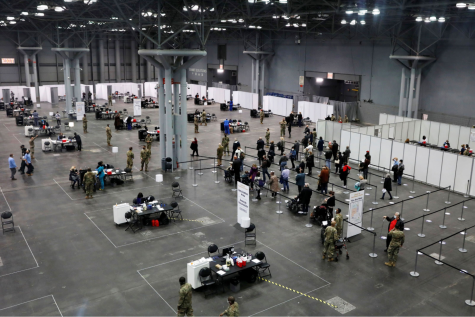Redefining Patriotism: A Look Into “The Take a Knee” Protests
The Take A Knee protests (when people take a knee during the National Anthem) against police brutality and in support of Black Lives Matter have taken the media and our country by storm. What started off as an unnoticed protest in August 2016, led by Colin Kaepernick (the former quarterback for the San Francisco 49ers), has turned into a movement that has angered many, including President Donald Trump, but that has also inspired protestors across the country.
After deciding that the police brutality happening in our country was “bigger than football and it would be selfish on [his] part to look the other way” Kaepernick declared in a statement to the media that he is “not going to stand up to show pride in a flag for a country that oppresses black people and people of color.” When Brianna Johnson ‘20 saw Kaepernick’s words circulating on her Instagram feed, she “immediately felt a sense of validation.” Johnson shared, “I felt like someone finally understood all of my feelings of anger, fear and frustration with the system that has been driving this country for centuries.”
While the Take a Knee protests have been happening now for over a year, the story only recently jumped back into headlines when in September, President Trump stated that anyone who didn’t stand for the anthem was a “son of a bitch” and should be fired by his team’s owner. Many Americans praised Trump for his words, echoing his belief that by kneeling during the National Anthem, Kaepernick was disrespecting our flag, our country, and our military. As a result of his protest, Kaepernick was forced to become a free agent and is now out of a job, despite having the skill to play in the NFL.
In response to President Trump’s comments and the NFL’s reaction towards Kaepernick, Eric Reid, Kaepernick’s teammate who participated in the protest, wrote an Op-Ed in the New York Times explaining how the image of disrespect being painted by President Trump couldn’t be further from the truth. Reid writes that Kaepernick and himself choose to kneel peacefully because “it’s exactly the opposite” of disrespect. Reid explains that “it has always been my understanding that the brave men and women who fought and died for our country did so to ensure that we could live in a fair and free society, which includes the right to speak out in protest.”
Noah Epelbaum ‘19 experienced the protest first hand when he sang the National Anthem with the Brooklyn Youth Chorus at the Jets vs. Dolphins game on September 24th. When the Dolphins took a knee and the Jets linked arms with their CEO in a display of unity against police brutality, Epelbaum realized something was happening when the crowd made a sound he’d never heard before: “a combination of booing and cheering, but it seemed like booing was the vast majority.” While Epelbaum believes that the national anthem “deserves to have the people singing its anthem proudly,” he’s “never taken symbolism like the national anthem too strongly” and he “certainly see[s] nothing morally wrong with [NFL players’] protests.” He does wonder, however, “if the attention [garnered by the protests] ends up misplaced.”
Johnson elaborates on Eppelbaum’s thought when she points out how Trump’s headline-grabbing comments have “completely distracted the nation from the big issues at hand.” As Kaepernick phrases it, “there are bodies in the street and people getting paid leave and getting away with murder.” In the year since Kaepernick knelt for the first time, “police and law enforcement officials killed at least 223 black Americans” according to a Huffington Post analysis of data.
Colin Kaepernick’s Take a Knee protest has started countless conversations about the Black Lives Matter movement and Freedom of Speech, but it also raises many questions: What is protected under the First Amendment? Should athletes and entertainers use their platforms politically? What does it mean to be a patriot? Is protest patriotic? Berkeley Carroll students explored many of these questions during the first BC Talks Episode: Speech and Power.
By learning about our founding documents and past court cases, students were able to think critically about free speech today and how it applies to Berkeley Carroll. Head of Upper School, Jane Moore, explains that the “specific and deep education” students experienced during BC talks “replaces things like pledging allegiance to the flag or singing the National Anthem,” which are exhibits of patriotism that Berkeley Carroll doesn’t partake in. Ms. Moore elaborates by sharing that Berkeley Carroll’s underlying philosophy is that it is the school’s “responsibility to teach the students about the history of the country…so that they can decide in an informed way, not only an impassioned way, how they want to be Americans…” While Ms. Moore reveals that she “wouldn’t mind if someone [knelt for the national anthem]” or “even if someone protested things at the school,” not all schools agree with her.
High school students across the country have been joining Kaepernick in kneeling before football games during the National Anthem, and just like Kaepernick, some of these students have faced backlash from the administration, parents, and fellow students. According to the New York Times, a private Catholic school system in Long Island stated that its students could face “serious disciplinary action” if they knelt during the national anthem before sporting events. In Louisiana, the principal of a high school sent a letter to all students stating that athletes were required to stand “in a respectful manner” during the anthem and that “failure to comply will result in loss of playing time and/or participation as directed by the head coach and principal. Continued failure to comply will result in removal from the team.”
As we learned during BC Talks, protest among athletes and protest among students has a long and complex history. While many people who disagree with kneeling during the National Anthem believe that protesting is unpatriotic, Reid writes in his Op-Ed “It should go without saying that I love my country and I’m proud to be an American. But, to quote James Baldwin, ‘exactly for this reason, I insist on the right to criticize her perpetually.’” Reid and Baldwin argue that protesting is the essence of patriotism.

